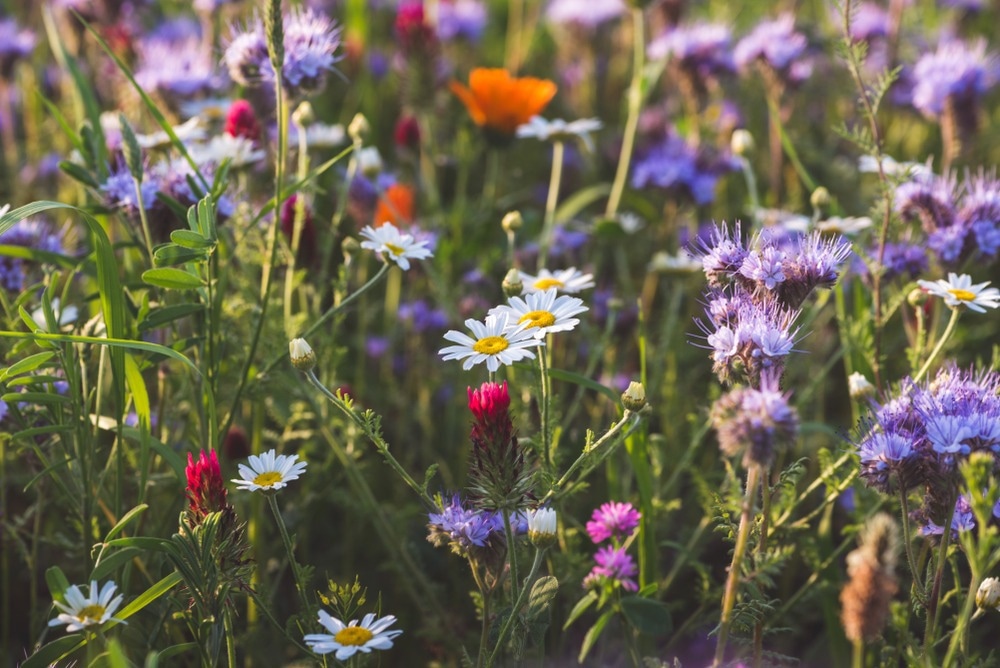Reviewed by Danielle Ellis, B.Sc.Sep 5 2023
A new study performed has discovered that air pollution considerably decreases pollination as it degrades the scent of flowers, impacting bees’ potential to determine them.

Image Credit: Juergen Bauer Pictures/Shutterstock.com
A research group including the UK Centre for Ecology & Hydrology (UKCEH) and the Universities of Reading, Birmingham, Surrey, and Southern Queensland, discovered that ozone considerably alters the size and scent of floral odor plumes. It decreases honeybees’ potential to identify odors by up to 90% from just a few meters away.
When volatile organic compounds (VOCs) released from vegetation in the presence of sunlight react with nitrogen oxide emissions from industrial and vehicle processes, ground-level ozone—which worsens respiratory conditions—is typically created.
Dr Ben Langford, an Atmospheric Scientist at UKCEH led the study, which has been published in the journal Environmental Pollution.
Langford states that the new study reveals that ozone is probably having a negative impact on crop yields and wildflower abundance. Numerous international studies have already established that ozone has a negative impact on food production since it damages plant growth.
Some 75% of our food crops and nearly 90% of wild flowering plants depend, to some extent, upon animal pollination, particularly by insects. Therefore, understanding what adversely affects pollination, and how, is essential to helping us preserve the critical services that we reply upon for production of food, textiles, biofuels and medicines, for example.”
Dr Ben Langford, Atmospheric Scientist, UK Center for Ecology & Hydrology
Dr James Ryalls, a University of Reading co-author of the research paper, stated, “The study provides clear mechanistic evidence of how ozone pollution, concentrations of which are typically higher in rural areas, can reduce pollinator visitation to flowers.”
The new study was financially supported by the Natural Environment Research Council, part of UK Research and Innovation. The scientists utilized a wind tunnel to track how the size and shape of odor plumes altered the existence of ozone.
By decreasing the size of the odor plume, the researchers discovered that the scent of the plume changed as some compounds reacted faster compared to others.
After being trained to identify the same odor blend, honeybees were exposed to the new, ozone-modified odors. Pollinating insects use floral odors to locate flowers and develop the association between the specific chemical composition of each flower and the quantity of nectar it offers. This enables them to find the same species in the future.
The study revealed that towards the center of plumes, around 52% of honeybees identified an odor at 6 m, thereby reducing to 38% at 12m. At the edge of plumes, which degraded more rapidly, 32% of honeybees identified a flower from 6 m away and just a tenth of the insects from 12 m away.
The researchers claim that their results suggest that ozone may also have an impact on insects’ other odor-controlled behaviors, such as their capacity to attract and find a mate. The first study demonstrating that common air pollutants, such as ozone and diesel exhaust fumes, have a detrimental effect on pollination in the natural environment was released by the same research team last year.
Source:
Journal reference:
Langford, B., et al. (2023) Mapping the effects of ozone pollution and mixing on floral odor plumes and their impact on plant-pollinator interactions. Environmental Pollution. doi.org/10.1016/j.envpol.2023.122336.